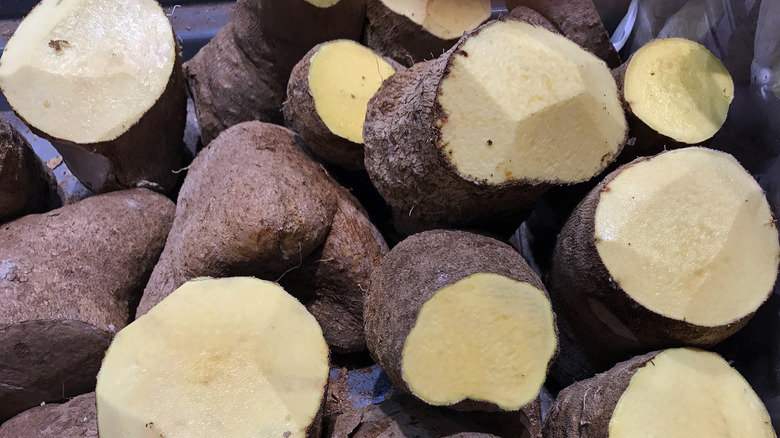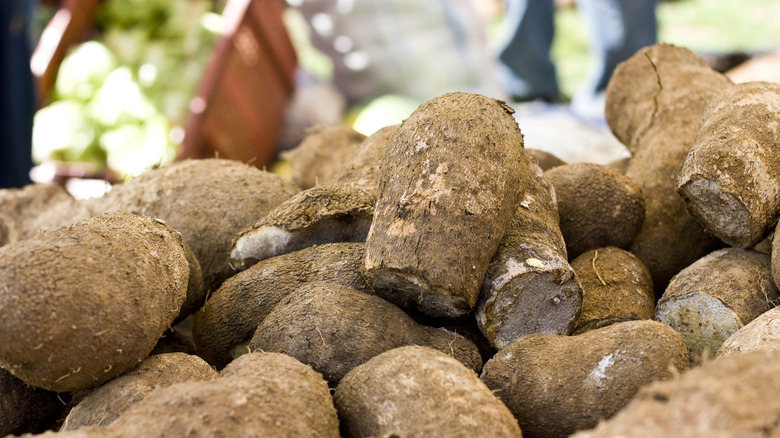If you’re a potato-loving person, then there’s probably a good chance that you like sweet potatoes too. Sweet potatoes are an excellent source of fiber, rich in beta-carotene, and their potassium content is great for kidney health and keeping blood pressure levels within a healthy range.
If you already know you enjoy these tubers, you may also want to give yams a try. No, sweet potatoes and yams aren’t the same. “Most of the so-called yams you see in American grocery stores are actually orange-fleshed sweet potatoes,” Mary-Frances Heck, author of “Sweet Potatoes,” told Bon Appétit. Heck explained to the magazine that when a new breed of orange potatoes was grown in 1930, they were called “yams” to distinguish them from the sweet potatoes that were already on the market and no one ever came up with another name for them. In fact, if you take the “yams” you see in the market and compare them to a real yam, other than both being tubers, they don’t look or feel similar at all. For starters, yams aren’t orange but have rough, brown skin and white insides.
But looks aside, yams are full of vitamins and minerals that are great for the body — just like sweet potatoes. Yams also contain components that can help prevent cancer and fight heart disease.
Yams have antioxidant properties to help prevent cancer
Like their cousin, the sweet potato, yams are a fantastic source of antioxidants, some of which might have anticancer properties. According to a 2002 study published in Planta Medica, when the tuber mucilage — the inside components — was extracted from yams, it revealed antiradical and antioxidant properties.
A 2014 study published in Preventative Nutrition and Food Science found that when rodents were fed a yam-rich diet, tumor growth in their colons was significantly reduced. The yams’ antioxidant and anti-inflammatory properties contributed to this reduction, suggesting they might be the key to preventing colon cancer and possibly other cancers.
However, it’s worth noting that more research needs to be done to confirm anything. So if colon cancer, or any cancer for that matter, runs in your family, it doesn’t mean that inundating your diet with yams is necessarily going to keep you cancer-free. However, it certainly wouldn’t hurt to start eating yams, if you don’t already.
Yams have potassium to protect against heart disease
One cup of yams contains 19% of the recommended daily value of potassium that the human body needs. This is great news for those who may have heart disease or may be genetically predisposed to it. According to a 2013 study published in Advances in Nutrition, there’s a direct link between potassium and its ability to lower blood pressure, therefore decreasing the risk of a stroke or other cardiovascular diseases. However, the study authors did point out that salt should be limited when eating foods that have a naturally high amount of potassium (like yams) or it could negate the positive effects that potassium has on heart health.
Yams also contain diosgenin, which is a phytoestrogen — basically plant-based estrogen. A 2019 study published in Diabetes, Metabolic Syndrome, and Obesity found that over the period of four weeks, diosgenin lowered all cholesterol levels in mice and, most notably the “bad” LDL levels. Although more research is needed to see if the same effect is possible in humans, low cholesterol is an essential part of keeping your heart healthy.


